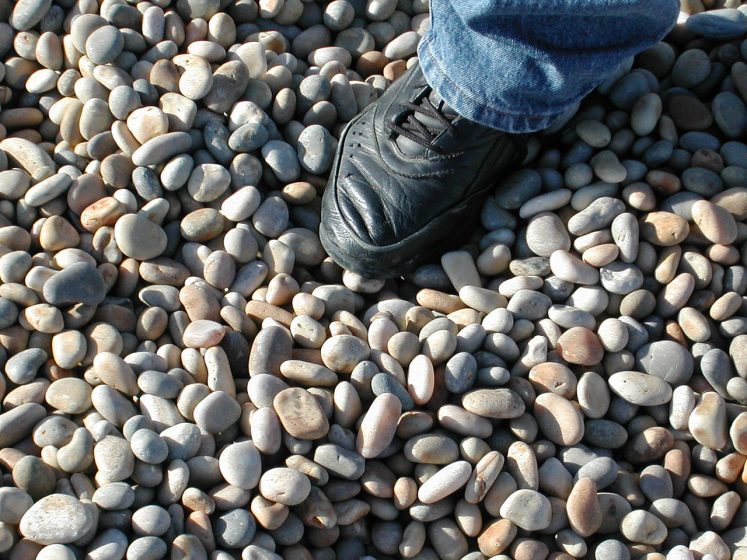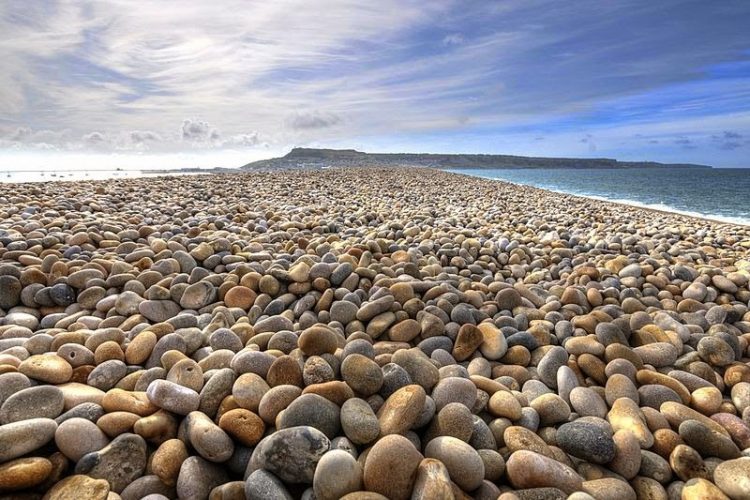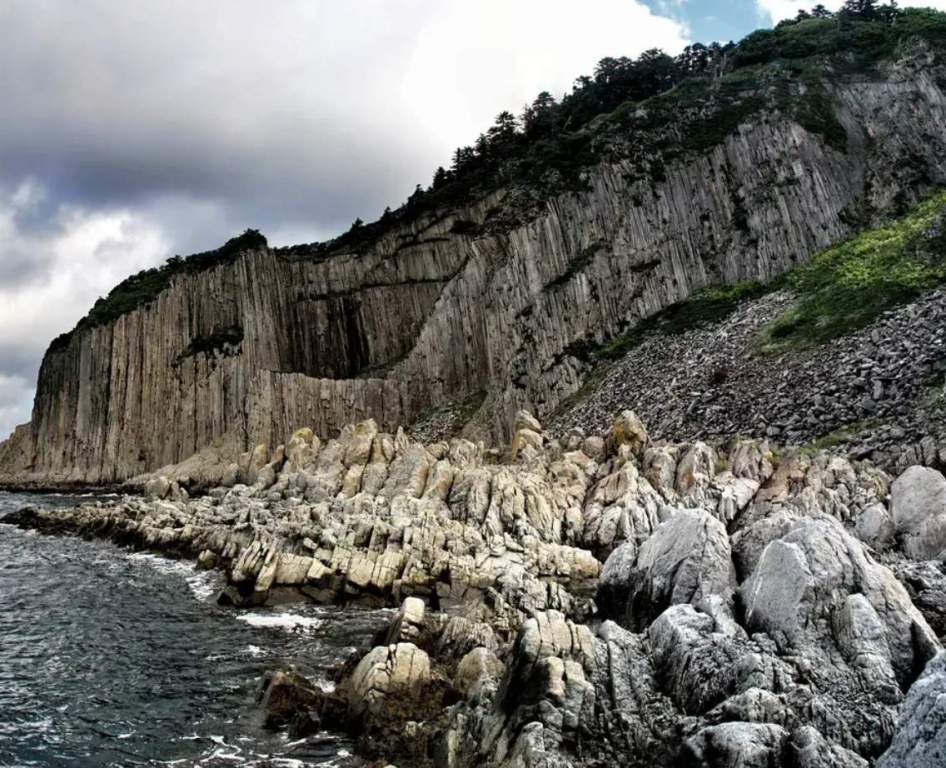The English Chesil Beach “Chesil Bank” lies in the county of Dorset. It is popular for its pebbles stretched 18 miles (28 kilometers) long and northwest from Portland to West Bay. The Beach is also called Shingle Beach. The most beach length is separated from the mainland by saline water called the Fleet Lagoon, which is a shallow area.
The 13 KM long Fleet Lagoon is having a width of approximately 900 meters at little sea down to just 65 meters in the Narrows with the deepest part being 4 to 5 meters. The size of pebbles varies from pea-sized to fist-sized. The average diameter of the stones is 2 inches (5 cm). It is the largest shingle tombolo in the UK.
There are different types of rocks that can be found here including quartzite, granite, flint, magnetite, pumice, and others. Nevertheless, some stories related to smugglers landing on this beach at midnight may judge exactly where they were by the size of shingles. On the eastern side of the Chesil Beach, an area of Hamm Beach consists of shallow sand dunes overlaying shingles. Moreover, Fossils take place all along the landward shore of the Fleet and along the landward side of Chesil Beach from Abbotsbury to West Bay. Some evidence recommends that Chesil Beach is no longer being replenished by natural means.
The key site is at Burton Bradstock. There have been numerous shipwrecks on Chesil Beach, predominantly during the age of sail. Chesil Beach is a popular location for sea angling, with access at Chiswell, Ferry Bridge, Abbotsbury, Cogden, Burton Bradstock, and West Bay. In the summer and spring season, Chesil Bank is an important breeding site for Little Terns Sterna albifrons. They feed in the shallow waters of the lagoon, as well as nearby waters outside the SPA.
Chesil Beach in the Second World War
In the Second World War, the beach and the Fleet were used as an experimental bombing range by the RAF before and during World War II. The small population and density of nearby areas are in proximity to the naval base in Portland. Also, this area was also used for machine gun training and Highball bouncing bomb testing during the war. Chesil Beach shelters Weymouth from the prevailing wind and waves and prevents the area from being eroded by wave action.
Read More – The Colored Pebbles of Lake McDonald
Source: – Wikipedia












